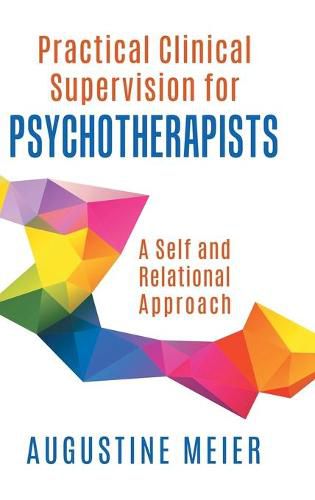Readings Newsletter
Become a Readings Member to make your shopping experience even easier.
Sign in or sign up for free!
You’re not far away from qualifying for FREE standard shipping within Australia
You’ve qualified for FREE standard shipping within Australia
The cart is loading…






This title is printed to order. This book may have been self-published. If so, we cannot guarantee the quality of the content. In the main most books will have gone through the editing process however some may not. We therefore suggest that you be aware of this before ordering this book. If in doubt check either the author or publisher’s details as we are unable to accept any returns unless they are faulty. Please contact us if you have any questions.
A clinical supervisor plays a key role in the development of an individual who aspires to become an autonomous and independent practicing psychotherapist. Having a graduate degree in psychotherapy or psychology does not necessarily provide the qualifications for one to become a supervisor. There is much to be learned to become an effective supervisor. Being a supervisor takes on characteristics of art and science as there are many twists and turns in helping an individual move through theoretical, ethical, legal and relational issues. It is essential that the supervisor be well versed in these issues and be creative and flexible in responding to the unique needs and personality of each supervisee.
This book provides the essential information for clinical supervisors to begin to provide supervision to aspiring psychotherapists. The book addresses in a special way conditions that enliven the supervision experience, goals and functions of supervision, models of supervision, ethical and legal issues, methods and techniques available to the supervisor, evaluation types and criteria, professional development, self-reflectivity and the parallel process. Although supervision is defined as being evaluative, hierarchical and continuous, the focus is on building a relationship with the supervisee so as to develop a climate conducive to growth on all dimensions.
A unique characteristic of the book is that it presents a supervision model with three foci, namely, client focused, client-therapist focused and therapist-supervisor focused supervision. It demonstrates these three foci by the use of transcripts from role played supervision sessions. The demonstrations provide the reader an opportunity to study the transcripts in detail and to use them as a model for self-development as a supervisor. In brief, the book provides information and at the same time offers the challenge for the formation of oneself as a supervisor.
$9.00 standard shipping within Australia
FREE standard shipping within Australia for orders over $100.00
Express & International shipping calculated at checkout
This title is printed to order. This book may have been self-published. If so, we cannot guarantee the quality of the content. In the main most books will have gone through the editing process however some may not. We therefore suggest that you be aware of this before ordering this book. If in doubt check either the author or publisher’s details as we are unable to accept any returns unless they are faulty. Please contact us if you have any questions.
A clinical supervisor plays a key role in the development of an individual who aspires to become an autonomous and independent practicing psychotherapist. Having a graduate degree in psychotherapy or psychology does not necessarily provide the qualifications for one to become a supervisor. There is much to be learned to become an effective supervisor. Being a supervisor takes on characteristics of art and science as there are many twists and turns in helping an individual move through theoretical, ethical, legal and relational issues. It is essential that the supervisor be well versed in these issues and be creative and flexible in responding to the unique needs and personality of each supervisee.
This book provides the essential information for clinical supervisors to begin to provide supervision to aspiring psychotherapists. The book addresses in a special way conditions that enliven the supervision experience, goals and functions of supervision, models of supervision, ethical and legal issues, methods and techniques available to the supervisor, evaluation types and criteria, professional development, self-reflectivity and the parallel process. Although supervision is defined as being evaluative, hierarchical and continuous, the focus is on building a relationship with the supervisee so as to develop a climate conducive to growth on all dimensions.
A unique characteristic of the book is that it presents a supervision model with three foci, namely, client focused, client-therapist focused and therapist-supervisor focused supervision. It demonstrates these three foci by the use of transcripts from role played supervision sessions. The demonstrations provide the reader an opportunity to study the transcripts in detail and to use them as a model for self-development as a supervisor. In brief, the book provides information and at the same time offers the challenge for the formation of oneself as a supervisor.